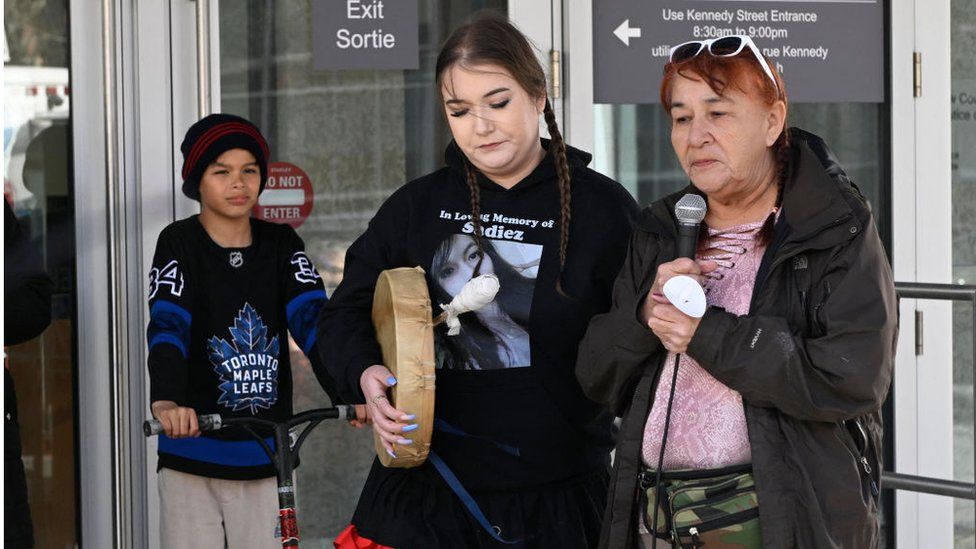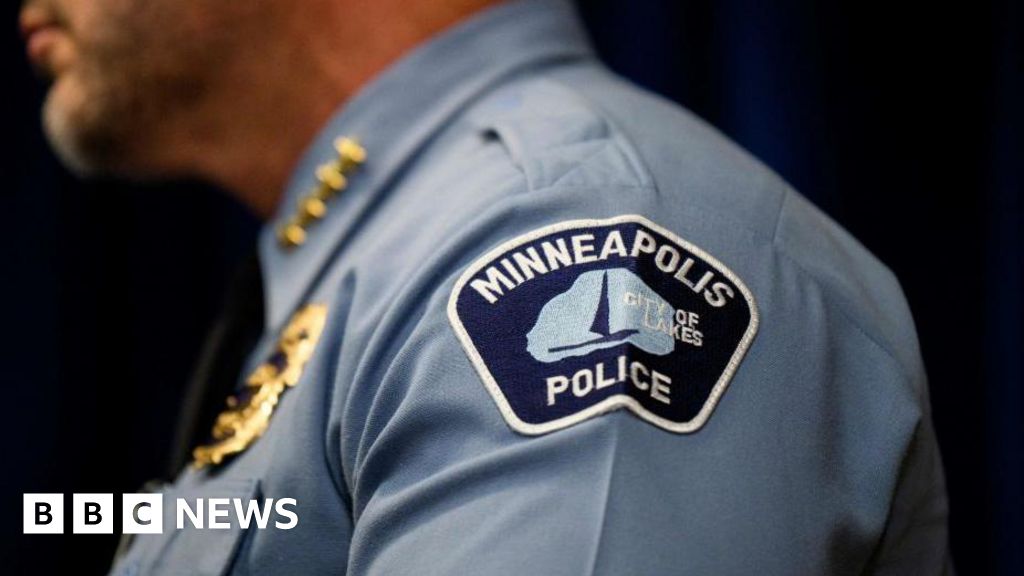ARTICLE AD BOX
 Image source, AFP via Getty Images
Image source, AFP via Getty Images
Relatives of the victims help a vigil in front of the Winnipeg courthouse last week
The high-profile trial of a Canadian man accused of murdering four indigenous women two years ago is set to begin in Winnipeg, Manitoba.
Jeremy Skibicki has pleaded not guilty to four first-degree murder charges.
In an unexpected development on Monday, his lawyers said Mr Skibicki has admitted the killings but will argue he is not criminally responsible due to a mental disorder.
Families of the victims say they want him held responsible for the murders.
Caution: This article contains upsetting content.
Mr Skibicki's victims - Morgan Harris, 39, Marcedes Myran, 26, Rebecca Contois, 24, and a fourth unidentified woman who has been given the name Mashkode Bizhiki'ikwe, or Buffalo Woman - are all First Nations women.
Prosecutors accuse Mr Skibicki, who is in his mid-30s, of taking the women home and sexually assaulting them before murdering them between March and May of 2022.
Mr Skibicki was arrested that same year, after the remains of Ms Contois were discovered in a garbage bin and at a local landfill.
Police believe the bodies of Ms Harris and Ms Myran were disposed of at a separate landfill north of the city. Their remains have yet to be found.
The location of the remains of the fourth victim - Buffalo Woman - is unknown.
Crown prosecutors have agreed the trial, which was originally scheduled to be before a jury, can be heard by a judge alone.
An earlier request by Mr Skibicki's lawyers to not have a jury was initially denied, but on Monday the trial judge accepted their request after the defence said it was now seeking a not criminally responsible verdict.
Jurors who had already been selected in late April to hear the case are expected to be officially dismissed on Wednesday morning.
The trial is expected to continue through early June.
The deaths of the four women sparked an outcry in Canada, where a disproportionate number of indigenous women and girls are murdered or go missing.
In 2014, the federal statistics agency reported that indigenous women are six times more likely to be the victim of a homicide than non-indigenous women.
The case has also remained in the news as the families of the victims have fought to pressure the government to authorise and pay for the search the Prairie Green landfill, where the remains of Ms Myran and Ms Harris are believed to be.
Initially, the provincial Manitoba government refused, citing the challenges of finding the remains, the cost, and concerns for worker safety given the presence of hazardous chemicals at the site.
But the province shifted course after a change in government saw the election of Premier Wab Kinew, who is indigenous.
A search will likely start later this year after the province and Ottawa set aside a combined C$40m ($29m; £23.3m) in funding.
The news was welcomed by Cambria Harris, Ms Harris' daughter, who has been advocating for the search since 2022.
"It's about showing our indigenous women, our indigenous people, that we're worth it," Ms Harris told CBC news recently.
"That we're valued, that we're loved and we're more than worth searching for."

 1 year ago
72
1 year ago
72








 English (US) ·
English (US) ·